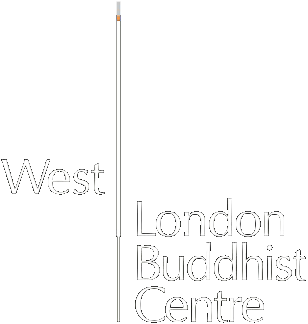Mindfulness and Resilience continued
In last week’s Mindfulness Notes, Vajradaka introduced three qualities which are very useful when you feel some sort of physical pain or a difficult situation: expansiveness, relaxation and confidence. Today he continues the theme of developing resilience.
Developing emotional and mental resilience
We can develop resilience by becoming aware of the range of experience from discomfort to comfort. One of the important foundations of mindfulness is developing the capacity to be aware of sensations and experiences in the body in a wide range from pain/discomfort right through to pleasure/comfort.
Awareness of discomfort
Part of the art here involves creating a capacity for mental and emotional spaciousness and openness in which kindness and other positive qualities can exist in relationship to the discomfort. This also includes having a caring and well-wishing attitude towards yourself. This includes the ability to experience discomfort while feeling relaxed enough to stay with it.
A positive response to discomfort and pain
Open and relaxed awareness allows you to respond positively to the discomfort or injury with self-kindness which might involve some kind of necessary healing process. This self-care could also be the basis for you also taking up some preventative measures which avoids exacerbating and causing further damage.
This open, aware and relaxed spaciousness allows for positive qualities like kindness and care to come into being. It is the opposite of denial or the tendency to override the discomfort in any way, especially if the discomfort or physical pain doesn’t fit in with your ideals or plans. Denial and overriding or by-passing can go hand in hand with irritation and impatience, both of which are antithetical to wellness and self care.
Find a space and time when you can sit quietly without distraction
Using the wide angle approach to awareness take in the whole of your body and be open to the whole range of experience from discomfort to comfort. If you can stay with the discomfort and avoid zoom focusing in on it.
Consciously relax your body if it has tightened in response to the discomfort. Imaginatively give the discomfort space and consciously be open to the quality of care for it. This allows you to become used to being comfortable, relaxed and at ease with discomfort within your body. Bringing in the sense of caring and looking after yourself helps you do what you can with the discomfort or pain.
**
Vajradaka is one of the most experienced meditation teachers in Triratna and is continuously developing fresh approaches to maintaining and developing a vibrant meditation practice. He is known for easy to relate to ways of teaching which come across as clear, practical and relevant. He is a regular guest teacher on Dharma Night.

